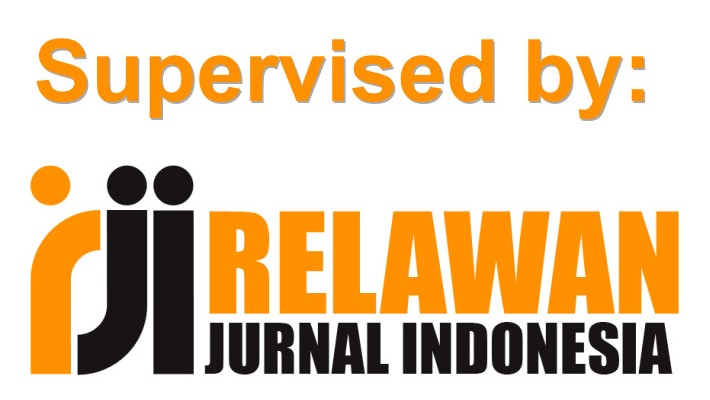SYSTEM DEVELOPMENT FOR ENHANCING BOILER PERFORMANCE: FROM PID CONTROL TO ADAPTIVE AND MODEL PREDICTIVE CONTROL FOR MORE EFFECTIVE OPTIMIZATION OF TEMPERATURE, PRESSURE, AND LEVEL CONTROL IN BOILER SYSTEM
DOI:
https://doi.org/10.56127/ijst.v2i2.680Keywords:
Boiler, Control System, PIDAbstract
When discussing control systems for boilers, the PID (Proportional-Integral-Derivative) control algorithm is one of the most well-known and widely used. The PID control algorithm has been proven effective in controlling temperature and pressure within boiler systems. However, as technology advances, there have been advancements in more sophisticated and efficient control systems. One of these advancements is the utilization of adaptive control and model predictive control. Adaptive control can adapt to changes in operational conditions and provide better performance compared to PID control. Meanwhile, model predictive control utilizes a mathematical model of the system to predict future behavior and make control decisions based on these predictions. Nevertheless, the PID control algorithm remains crucial and can deliver satisfactory performance in temperature and pressure control within boilers. The key to effective use of PID control lies in the selection of appropriate parameters and proper tuning. By employing the correct tuning methods, PID control can achieve optimal performance and high efficiency in boiler systems. Overall, the use of the PID control algorithm remains a good choice for temperature and pressure control in boiler systems, despite advancements in more advanced and efficient control systems. Model predictive control, on the other hand, utilizes a mathematical model of the boiler system to predict its future behavior. By solving an optimization problem over a predictive horizon, it determines the optimal control actions to be applied. This proactive approach allows model predictive control to account for constraints, nonlinearity, and system dynamics, leading to improved control performance and energy efficiency. In conclusion, while PID control remains a viable option for temperature and pressure control in boiler systems, the advancements in adaptive control and model predictive control offer more sophisticated and efficient alternatives. The choice of control strategy depends on the specific requirements, complexity, and desired performance of the boiler system. Combining different control techniques or employing advanced control algorithms can further enhance the overall control performance and optimize the operation of the boiler system.
References
F. Kurniawan, S. S. Priambodo, dan A. Suwono, "Desain dan Implementasi Kontroler Logika Fuzzy untuk Kontrol Suhu Penukar Kalor," Jurnal Teknik Mesin Indonesia, vol. 15, no. 1, pp. 15-22, 2020.
E. L. Procopiuc, L. M. Diaconu, dan D. Tarniceriu, "Strategi Kontrol Model Prediktif untuk Kontrol Suhu pada Penukar Kalor Pelat," Jurnal Ilmu dan Teknologi Kelautan Tropis, vol. 10, no. 2, pp. 265-272, 2018.
M. Firdaus dan R. Triandana, "Perancangan Sistem Kontrol Level pada Boiler Menggunakan Metode Fuzzy Logic," Jurnal Teknologi Reaktor Nuklir, vol. 19, no. 2, pp. 109-116, 2017.
R. Sutrisno, A. Setiawan, dan Y. Trisnawati, "Optimasi Sistem Kontrol PID pada Boiler dengan Metode Ziegler Nichols," Jurnal Teknik Elektro, vol. 13, no. 2, pp. 46-52, 2021.
M. A. Rahman, A. Setyawan, dan A. F. Wicaksono, "Perbandingan Performa Sistem Kontrol PID dan Kontrol Model Prediktif pada Boiler," Jurnal Teknik Elektro dan Komputer, vol. 2, no. 1, pp. 25-29, 2021.
M. F. F. Ab Rashid, M. A. Hussain, dan M. A. Matin, "Kontrol Prediktif Adaptif untuk Sistem Penukar Kalor," Jurnal Teknik Kimia Indonesia, vol. 13, no. 2, pp. 81-91, 2014.
Gao, F., Yu, Q., & Chen, H. (2019). An Improved Adaptive PID Control Algorithm for Boiler Steam Pressure Based on Improved Genetic Algorithm. IEEE Access, 7, 47802-47812.
Guo, H., Li, C., Yu, H., & Huang, Y. (2018). A novel boiler water level control based on a hybrid optimization algorithm. ISA Transactions, 78, 189-201.
Kim, K. Y., & Lee, K. H. (2017). A Design of PID Controller for Combustion Air Flow in an Industrial Boiler. Journal of Electrical Engineering & Technology, 12(1), 213-219.
Mohammadi, M., & Taheri, A. (2015). Design of Fuzzy-PID Controller for boiler-turbine unit. Journal of Control, Automation and Electrical Systems, 26(4), 403-415.
Park, J. H., & Kim, H. (2016). Decoupling Control of Steam Pressure and Water Level in a Drum-Type Boiler Using the Quantitative Feedback Theory. Energies, 9(9), 748.
Åström, K. J., & Hägglund, T. (1995). PID Controllers: theory, design, and tuning. Instrument Society of America.
Ogata, K. (2010). Modern control engineering. Pearson Education.

















